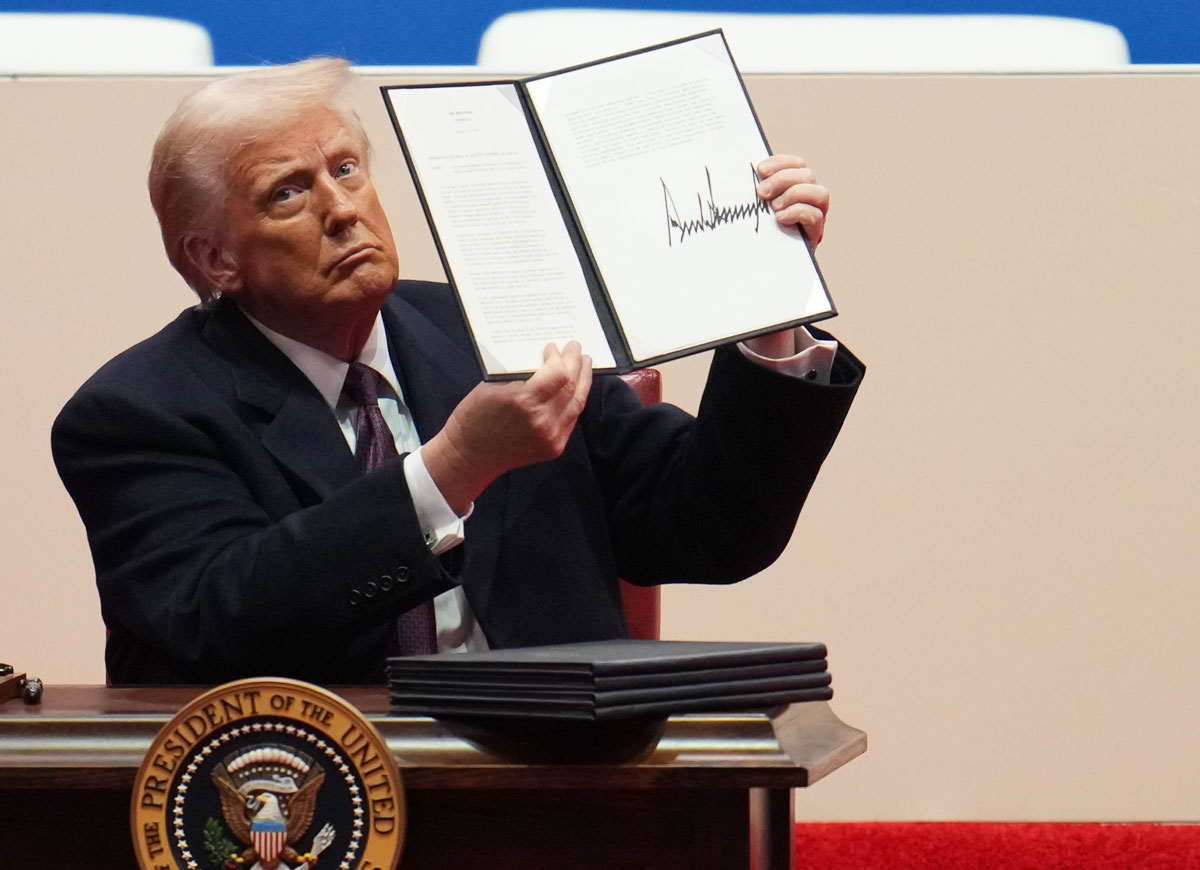Trump Signs Order To Slash Drug Prices – But Measure Has No Legal Authority
On Monday, President Donald Trump signed an executive order to cut drug prices in the U.S. and align them with costs in other countries.
After a federal judge blocked Trump’s implementation of a far smaller plan to reduce drug prices in his first term, he signed a sweeping executive order covering a wide range of actions.
It included several actions to renew the effort, titled the “most favored nation” policy. The order did not specify which countries the costs would replicate, but it would target other developed countries.
“Basically, what we’re doing is equalizing,” Trump said during a press event on Monday. “We are going to pay the lowest price there is in the world. We will get whoever is paying the lowest price, that’s the price that we’re going to get.”
Subscribe to our free weekly newsletter!
A week of political news in your in-box.
We find the news you need to know, so you don't have to.
White House officials also did not specify which medications this would affect, only that it would impact commercial markets, Medicare and Medicaid. During the press conference, Trump claimed the prices could be reduced by “50 to 80 to 90%.”
Americans pay nearly three times the drug costs of other developed nations. The order threatens rulemaking to bring the prices down, along with the potential to import these drugs from different countries and restrict exports to make these changes stick.
“Big Pharma will either abide by this principle voluntarily, or will use the power of the federal government to ensure that we are paying the same prices as other countries,” Trump said.
Democrats quickly pointed out that the order was meaningless since it carries no legal weight to enforce compliance.
Industry groups were also quick to slam the measure.
Stephen Ubl, CEO of PhRMA, an industry trade group, said, “Importing foreign prices from socialist countries would be a bad deal for American patients and workers. It would mean fewer treatments and cures and jeopardize the hundreds of billions our member companies are planning to invest in America.”
The reason for high prices in the U.S., Ubl claimed, is “foreign countries not paying their fair share and middlemen driving up prices for U.S. patients.”
The order directs the U.S. Federal Trade Commission to consider enforcement against “anti-competitive practices by drugmakers.”
While the Trump administration ordered these changes, there is likely to be judicial pushback, similar to Trump’s first attempt at reducing drug prices.
The Biden Administration allowed for Medicaid to negotiate drug prices for the first time in its history under the Inflation Reduction Act, but Trump has tried to repeal the law.
Get the most-revealing celebrity conversations with the uInterview podcast!







Leave a comment